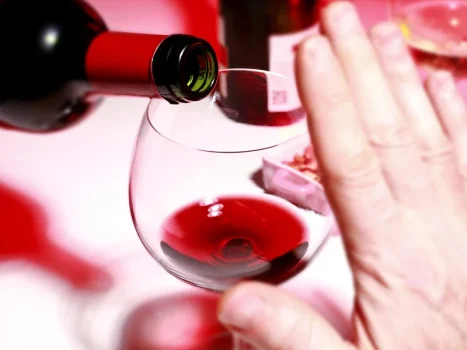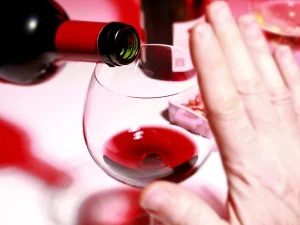
The relationship between alcohol and deep vein thrombosis may depend on what, and how much, you pour in your glass. American Addiction Centers (AAC) is committed to delivering original, truthful, accurate, unbiased, and medically current information. We strive to create content that is clear, concise, and easy to understand. Drinking alcohol in moderation is legal for adults in the United States who are at least 21 years old.
Screening with telephone-based intervention reduces risky alcohol use in Texas study
Excessive alcohol consumption can lead to high blood pressure, heart failure, or stroke. It can also contribute to cardiomyopathy, which affects the heart muscle. Get individualized medical advice from your healthcare provider when deciding whether or not to drink on medications like blood thinners. Although our results do not reveal the mechanism for this association, according to our literature review, we suggest that several possible explanations exist for the mechanism for this Sobriety association.
Should You Drink Alcohol While Taking Blood Thinners?
Heavy alcohol use is more likely to increase your bleeding risk than a glass of wine here and there, but there really is no defined safe amount of alcohol when you’re on blood thinners. No right-minded doctor would ever prescribe an evening glass of wine over blood-thinning medications if you’re at risk of forming clots. When your risk of bleeding increases, your risk of serious medical issues like hemorrhagic stroke increases. You does alcohol prevent blood clots may also find that you bruise more easily, feel more tired than usual, and suffer from more nosebleeds. Drinking more than 3 drinks at a time may also raise blood-pressure and lead to a short-term boost in cortisol production.

Is this a short-term effect?
- A J-shaped relationship for females showed protective effects at or below consumption levels of 15 g/day (Taylor et al. 2009).
- This article explores how alcohol affects the ability of the blood to clot.
- Having a drink or two every once in a while may be fine when you’re on blood thinners — just be sure to talk to your doctor.
- MAPKs are activated in response to stressful stimuli and help regulate apoptosis.
- There also is desensitization of the mitochondrial permeability transition pore, which can mitigate ischemia–reperfusion injury (Walker et al. 2013).
The AI cohort exhibited a higher hazard ratio for individuals aged between 20 and 50 years. Although not statistically significant, a higher incidence was observed among those older than 50 years. This could be result from the relative small sample size of these 2 groups.

Studies also have examined the “safety” of alcoholic beverage consumption in subjects with heart failure. Several reports indicate that alcohol first exerts a seemingly positive effect, followed by a more negative impact (i.e., it is biphasic) on the endothelial–nitric oxide–generating system. Endothelial dysfunction is an early indicator of blood vessel damage and atherosclerosis, as well as a strong prognostic factor for future CV events (Deanfield et al. 2007; Ras et al. 2013). Low-to-moderate levels of alcohol consumption may initially improve endothelial function, whereas high daily levels and binge drinking may impair it. By adopting these preventive measures and closely managing existing conditions, we can reduce our risk of alcohol-related blood clotting and promote overall cardiovascular health.

What is a ’safe‘ level of alcohol consumption when it comes to stroke?
If you or a loved one is struggling with alcohol abuse, please call our helpline today. Make sure to check with your doctor before you drink alcohol with your medication. Discover how inpatient drug rehab in Brooklyn customizes treatment lengths, typically days, to meet individual needs and build a strong foundation for recovery. Explore drug rehab program durations, from short-term to long-term options, tailored to individual needs. By prioritizing a healthy lifestyle and seeking professional help when necessary, individuals can take proactive steps towards maintaining a healthy circulatory system and overall well-being.
- Some studies suggest that moderate alcohol consumption may have some health benefits, such as reducing the risk of heart disease.
- If it’s busy working on the alcohol instead of your blood thinner, the level of the drug in your blood will go up and raise your bleeding risk.
- This is not surprising, because mitochondria are a major target for free-radical injury.
- As noted in the text, the exact amount and duration of alcohol consumption that results in ACM in human beings varies.
Hemorrhagic strokes are when blood leaks from a blood vessel or the blood vessel explodes. A scientific review found that heavy drinkers are at greater risk for developing a hemorrhagic stroke. Blood clots are a group or mass of blood cells and other substances that form in our blood vessels.
- You should also closely follow your doctor’s instructions for taking blood thinner medication.
- Alcohol consumption can elevate INR levels, indicating a higher risk of bleeding.
- The term „blood thinning“ can be a bit misleading as it does not actually dilute or thin the blood.
- When a blood vessel is damaged, platelets aggregate and form a clot to stop bleeding.
- This clumping of platelets as well as other factors is an essential component of the blood clotting process.

Among those who said they drink alcohol, four in 10 were heavy drinkers or at risk for becoming one. To look at it another way, the National https://ecosoberhouse.com/ Institute on Alcohol Abuse and Alcoholism (NIAAA) estimates that nearly 19 million Americans have a problem with alcohol. For people who aren’t addicted to alcohol, a little bit has no long-lasting ill effects and may, in some instances, be beneficial, as with the heart and arteries. For example, a small amount of alcohol taken with a meal improves tissues‘ sensitivity to insulin, which may decrease the chances of developing type 2 diabetes. This article discusses the effects that alcohol has on the blood in both the short and long term.
In small amounts, alcohol can act as an anticoagulant, reducing blood’s ability to clot and causing it to start thinning. Always ask your doctor if it’s safe for you to consume alcohol while taking blood thinners. If you must drink alcohol while taking blood thinners, do so in moderation.

